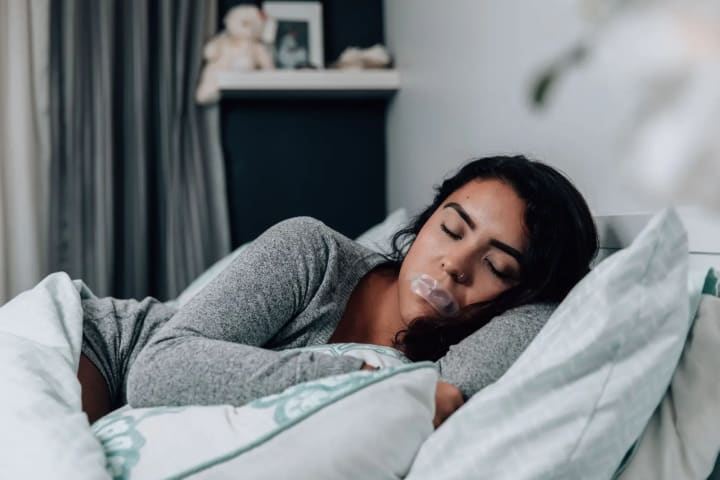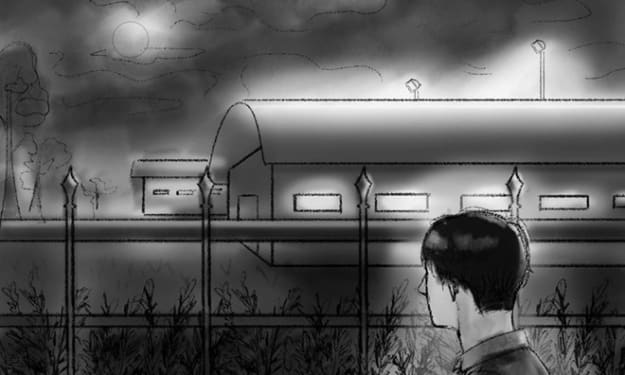Why do I often have dry mouth when sleeping at night?
If you often have dry mouth when you sleep at night or when you wake up, your oral health may be affected without you even realizing it, along with the risk of other health problems.

Symptoms associated with dry mouth at night may include:
- Saliva is thicker and thicker
- Breath is smelly
- Taste changes
- It may be more difficult to chew or swallow than usual
- Sore throat
- Deep grooves appear on the tongue (grooved tongue)
- Caries.
1. Causes of dry mouth when sleeping at night
According to Medical News Today, below are some common causes that can cause a person to frequently have dry mouth at night:
- Natural variation in saliva production
To solve this condition, your doctor can prescribe mouthwashes that help keep your mouth moist and reduce the feeling of dry mouth while sleeping. Consider preparing an extra glass of water to keep next to your bed. Drinking a little water will also help reduce dry mouth when you wake up.

- Old
In addition, poor diet and age-related health problems can also lead to dry mouth while sleeping.
Dry mouth can also be a side effect of some medications, and the condition can be worse at night. These drugs can be: antihypertensive drugs, antihistamines, antidepressants, diuretics, some drugs to control Parkinson's disease, side effects of chemotherapy and radiotherapy in cancer treatment.
What you need to do is talk to your doctor about any unusual symptoms you experience while taking the medication. Your doctor will consider reducing the dose or adjusting the time of taking it earlier. To reduce dry mouth caused by taking medication, you should also try taking medication with more water, chewing more gum to increase salivation, and using a humidifier to reduce the feeling of dry mouth when sleeping.
- Sleep apnea

- Breathe through your mouth when sleeping
- Sjogren's syndrome
In addition to dry mouth, Sjogren's syndrome can cause other symptoms such as difficulty swallowing food without drinking water, mouth pain, speech problems at night, dry eyes, dry nose, dry throat or vaginal dryness.
Injuries or surgeries in the head and neck area can sometimes lead to nerve damage, which can unintentionally affect your ability to produce saliva.
- Gastroesophageal reflux disease

Lying down can make reflux symptoms worse, which is why people with GERD may feel dry mouth and throat at night and when they wake up. To alleviate this, avoid eating at least 4 hours before going to bed and keep your pillow elevated when lying down.
- Diabetes
2. Home remedies for dry mouth when sleeping at night
Here are some things you can do at home to relieve dry mouth at night:
- Drink enough water and avoid eating too much salty food, especially at dinner.
- Prepare a glass of water next to your bed in case you wake up at night and your mouth is dry.
- Monitor the amount of caffeine your body consumes during the day. If possible, try reducing the amount of caffeine consumed because caffeine can make dry mouth worse.
- Use a humidifier in the room at night to keep moisture in the air while you sleep.
- Try to consciously breathe through your nose, not your mouth.

- Try chewing sugar-free gum or sucking on sugar-free candy to increase saliva production.
- Brush your teeth twice a day and use mouthwash, this helps you clean your teeth better and avoid cavities and bad breath.
- Avoid using mouthwashes that contain alcohol because alcohol can cause the oral cavity to become dry and easily irritated.
- Use caution when using over-the-counter antihistamines or decongestants.
- Avoid smoking and drinking alcohol.
3. When should I see a doctor?
If home remedies don't help relieve dry mouth at night, you should see your doctor for an accurate diagnosis. Especially if:
- Dry mouth does not improve even when using over-the-counter medications.
- Difficulty in eating, chewing and swallowing.
- Prolonged changes in taste.
- Caries.
- Bad breath does not go away.
- Mouth sores, mouth ulcers.
- Dry eyes.
- Urinating more often than usual.
- Sleep quality is affected.
In general, occasional dry mouth while sleeping at night is not usually a serious health problem, unless it occurs frequently. At this time, you need to see a doctor for appropriate diagnosis and treatment.
About the Creator
Ken aquariums
Telling stories my heart needs to tell <3 life is a journey, not a competition
If you like what you read, feel free to leave a tip,I would love some feedback
https://www.pinterest.com/Ken_Aquariums
https://s.shopee.vn/1B0pL9ZA9m
Enjoyed the story? Support the Creator.
Subscribe for free to receive all their stories in your feed. You could also pledge your support or give them a one-off tip, letting them know you appreciate their work.






Comments
There are no comments for this story
Be the first to respond and start the conversation.